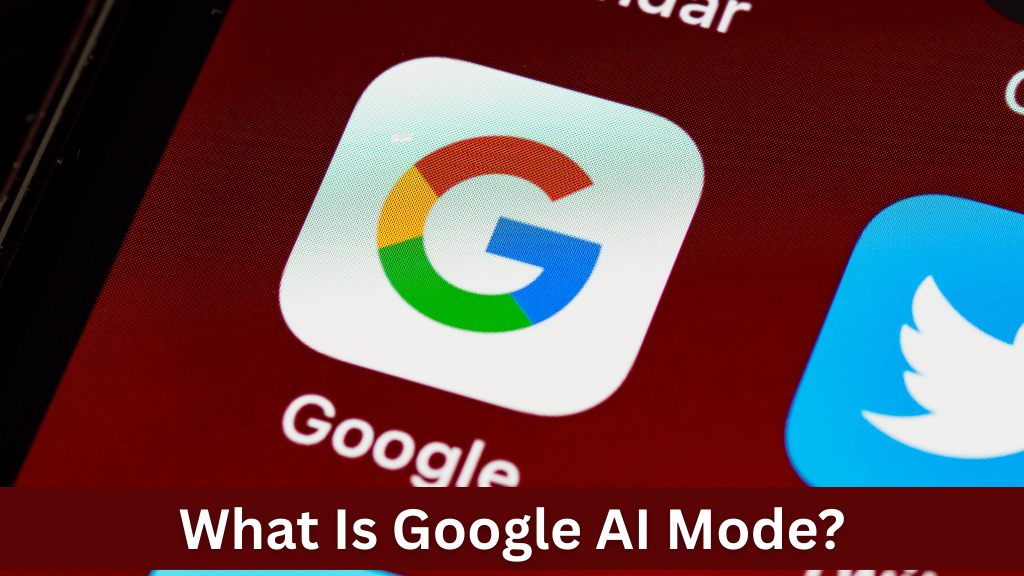In an era increasingly dominated by AI-powered tools, Google has introduced a game-changing feature: AI Mode. No longer just about link lists, this new approach turns search into a conversational, task-driven experience powered by generative AI. Let’s explore what it is, how it works, why it matters, and where it’s heading.
1. The Evolution of AI in Google Search
Google's journey into AI-enhanced search began with AI Overviews, which offered succinct, AI-generated summaries in response to search queries—often enough to reduce the need to click through to other websites.
On May 20, 2025, during its I/O developer conference, Google unveiled AI Mode, marking a fundamental shift toward interactive, chatbot-style search experiences .
By June 27, 2025, Google made AI Mode generally available to all U.S. users—no longer limited to Labs—accessible via the “AI Mode” tab in Search on mobile, desktop, or Chrome.
2. What Exactly Is AI Mode?
At its core, AI Mode transforms search into a dynamic interface where users:
- Ask questions conversationally—via text, voice, or images.
- Receive in-depth AI-generated responses that often synthesize information across multiple sources.
- Continue with follow-up queries seamlessly, maintaining context.
Powered by fiendishly clever techniques like the “query fan-out”, AI Mode breaks down complex queries into multiple sub-questions and searches them in parallel—then integrates the findings into concise, useful answers.
It leans heavily on Google’s own strengths—Gemini models (2.0, 2.5, Pro), Knowledge Graph, Search, Maps, and the real-time web—to deliver trustworthy, context-aware responses.
3. How AI Mode Works in Practice
Here’s what users can expect:
- Multimodal input: Ask via text, voice, or images (via Google Lens or device camera) and AI Mode understands the query.
- Follow-up friendly: AI Mode keeps conversational context alive—ask what you like, when you like .
- Deep Research via Deep Search: For complex topics, Deep Search (Gemini 2.5 Pro) compiles comprehensive, fully cited responses in minutes—available to AI subscribers in Labs .
- Fallback to traditional results: When confidence in an AI-generated response is low, Google still shows regular search results with links.
4. Agentic Abilities: AI Mode That Gets Stuff Done
AI Mode is no longer just about answering—it's about taking action. Recently, Google added agentic capabilities, making AI Mode more like a personal assistant:
- Restaurant reservations: U.S. users with Google AI Ultra can ask AI Mode to find restaurant availability based on parameters like date, time, location, party size, and cuisine. AI Mode then pulls options from OpenTable, Resy, Tock, and other platforms, presenting reservation links .
- Upcoming expansions: The system is being prepped for event tickets (Ticketmaster, StubHub, SeatGeek) and local service bookings .
- Personalization: Opting into Labs allows AI Mode to tap into your past search and Maps activity, tailoring suggestions to your tastes—for example, finding Italian food spots with outdoor seating if that’s your thing .
- Shareable sessions: Planning with others? Share a link to your AI Mode session so collaborators can continue where you left off—or you can revoke access later .
5. Global Reach & Access
Initially rolled out in the U.S., U.K., and India, AI Mode is now available across 180+ countries and territories, though it’s still primarily English-only for now .
Indian users already enjoy full access without needing to opt into Labs, while other regions await broader language support and enhancements.
6. Why AI Mode Matters — For Users and Publishers
For users, AI Mode heralds a faster, smarter, and more intuitive way to search:
- More natural interactions.
- Quicker decisions and less tab-hopping.
- Context-aware personalization.
For publishers, there's a flip side: AI-generated summaries reduce click-throughs—feeding into the phenomenon dubbed “Google Zero”, where users get answers without visiting websites.
Publishers are responding by enhancing subscription models, branding, social engagement, and direct traffic strategies to counteract potential traffic drops .
Despite concerns, Google defends the feature—asserting it maintains overall traffic volume and improves the quality of visits.
<!-- wp:heading {"level":3}🚀 New Batch Starting Soon!
Don't miss your chance to enroll now.
7. How to Use AI Mode
If you're a user:
- Opt in via Search Labs (where applicable).
- Access AI Mode via the “AI Mode” tab in Google Search or the app.
- Input your query using text, voice, or image.
- Browse AI-generated answers, follow up as needed, or switch back to regular results if necessary.
If you're a publisher:
- Think strategically—consider ways to leverage AI Mode for visibility (e.g., optimizing for featured snippets, crafting content that answers common queries clearly).
- Encourage users to click through—provide unique value beyond summary.
- Consider integrating storytelling, visual assets, and interactive elements that encourage engagement.
8. What’s Next for AI Mode
The future promises deeper capabilities and broader access:
- Multiple languages: Google plans to bring AI Mode functionality to more languages and regions.
- Expanded agentic tasks: Beyond dinner and events, upcoming integrations include services like appointments or other real-world chores .
- Richer interactions: Upcoming AI Mode enhancements could include visuals, charts, applications, or interactive widgets within search results.
- Deeper AI models: Incorporation of Gemini 2.5 Pro and advanced models through Deep Search will make answers even more precise and context-rich .
Conclusion
Google AI Mode represents a significant leap in how we search—turning static search results into conversational, intelligent, action-ready experiences. As it continues expanding globally and tapping into powerful AI models, it's already reshaping search behavior and online content consumption.
Whether you're a curious user or a publisher adapting to this brave new world, staying informed and strategic will be key. Stay tuned—AI Mode is just getting started.
Suggestion URL: 8 Must-Learn Digital Marketing Skills for 2025


